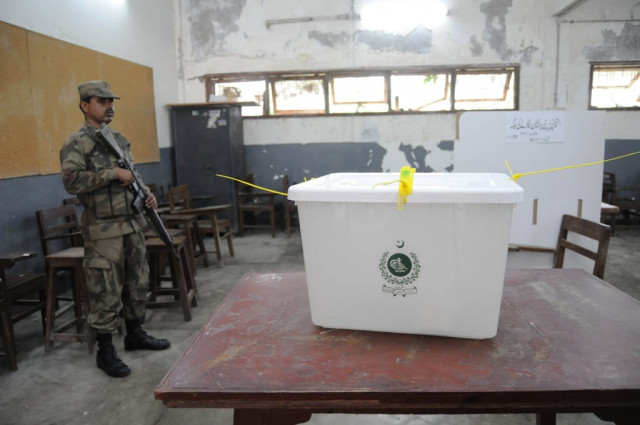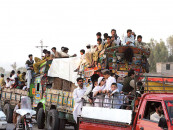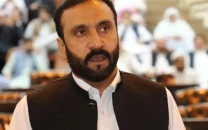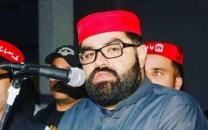Electorate might not be sold on idea of multiple elections
Distrust of political leaders, political process resulting in low turnout

With the Pakistan Tehreek-eInsaf (PTI) threatening to dissolve provincial assemblies, the ruling alliance at the centre has to choose between either holding elections for the provinces or calling a general election but the electorate might not turn out for polls in such quick succession.
Ever since the PTI’s ouster back in April, it seems that the country has held elections nearly every month whether those be bypolls or local body polls and now there’s a possibility that the practice might continue until the National Assembly completes its constitutional term.
However, Zeenat Bibi, a resident of Peshawar, feels that she is done voting for an eternity now.
“I am tired of voting every month. There is no point voting over and over when everything remains the same,” the 47-year-old remarked, adding that no politician looks back on the electorate once they have won.
“We repeatedly wait in long queues to cast our ballot but the end result is always the same; neither do we get any basic sanitation nor does anyone address the load shedding issue,” Zeenat lamented.
Muhammad Wahab, a student, who lives in the NA-31 constituency, concurring with Zeenat, said that the people of the city had wasted enough of their time waiting in lines to cast votes for people who did not address their concerns once in power.
“The inflation and unemployment are at an all-time high but no one seems to care,” said Muhammad, adding that the country’s problems would get even worse in the foreseeable future.
A report released by Free and Fair Election Network (FAFEN) shows that voter turnout in Khyber-Pakhtunkhwa (K-P) has declined over the years as the overall turnout in the 2018 general elections was 45% but in the recently concluded local polls turnout decreased to 40% - with one tehsil, Hangu, posting a measly 22% turnout.
Ahmed Bilal Mehboob, President of the Pakistan Institute of legislative Development and Transparency (PILDAT), when asked about elections being held in quick succession affecting turnout, replied that consecutive elections do not impact turnout negatively.
“For instance, in India, where it seems that there are elections year-round the average turnout remains 66%,” he informed.
Ahmed was of the view that it was the politicians’ attitude and corruption cases which had deterred people from showing up at the polling booths in recent months.
“It is not that people are bored of elections, it is just that the electorate is disappointed in their political leaders. The electorate is now forming the assumption that no leader is actually sincere with the country hence they refuse to cast their ballots,” Ahmed opined.
Timeline on K-P Assembly’s dissolution While it remains to be seen when the PTI will actually dissolve assemblies, triggering a counter-strategy from the ruling coalition at the centre, K-P’s Chief Minister (CM) is ready for the call to dissolve.
“Whenever the PTI’s Chairman, Imran Khan, tells us to put an end to the assembly’s life, we will not even hesitate for a moment,” said CM Mahmood Khan.
However, K-P’s newly appointed Governor, Haji Ghulam Ali, said that he was yet to receive even a single resignation from any of the PTI’s Members Provincial Assembly (MPAs).
“I belong to a democratic party and we want a democratic resolution to this quagmire. We can talk with the PTI on a logical way forward,” the Governor suggested.
Meanwhile, Awami National Party’s (ANP) Parliamentary Leader, Sardar Hussain Babak, feels that quitting assemblies is just another PTI ruse.
“All they do is threaten and then take a u-turn. The PTI’s chief just wants to garner further sympathies for his party. If he was serious about the country, K-P would not be in its current state of lawlessness, with a high street crime rate and rising terrorism,” Hussain criticized while talking to The Express Tribune.



















COMMENTS
Comments are moderated and generally will be posted if they are on-topic and not abusive.
For more information, please see our Comments FAQ